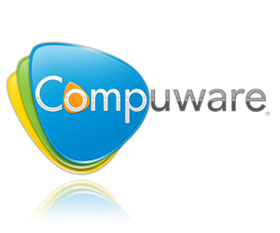Telkom outlines transformation plan
Following a tough year of trading, Telkom has unveiled a focussed recovery plan to guide its future operations towards improvement and transformation.
The plan is aimed at capitalising on the strength of Telkom’s massive network and its strong relationships with business, to produce superior broadband speeds and end-to-end reliability that cannot be matched by competitors.
“Competition, pricing pressures and regulatory intervention have all had an impact on our revenue,” said Group Chief Executive Officer Nombulelo Moholi at the release of the Group’s Annual Results in Johannesburg today.
“The declines seen in our traditional fixed-line voice revenue are set to continue. The year under review has been tough, with revenue declining 5.2% to R33.4 billion,” said Ms Moholi.
Operating expenditure has decreased 1.5% to R29.7 billion, despite the 10.3% growth in employee expenditure to R9.7 billion, and mobile start-up expenditure of R1.2 billion. This decrease was partly due to the drop in termination rates payable to the other operators.
The salient features of the Group’s results for the year ended 31 March 2011 were:
• Normalised operating revenue down 5.2% to R33.4 billion.
• Voice revenue decreased 16.8% to R13.7 billion.
• Data revenue increased 7.7% to R10.7 billion.
• ADSL subscribers increased 16.1% to 751,625.
• Calling plan subscribers increased 9.5% to 783,193.
• Managed data network sites increased 2.8% to 34,163.
• Normalised operating expenses decreased 1.5% to R29.7 billion.
• Normalised free cash flow decreased 36.8% to R3.5 billion.
• Normalised EBITDA margin decreased to 27.4% from 29.3%.
• Normalised headline earnings per share from continuing operations decreased by
35.2% to 444.9 cents.
• Normalised basic earnings per share decreased 29.9% to 448.1 cents per share.
Ms Moholi said that the years of investment in Telkom’s network assisted data revenue, which grew 7.7% to R10.7 billion.
“This is a good achievement, given the muted economic conditions and intensifying competition,” she said.
Prevailing market dynamics demanded that Telkom focus its future efforts on areas of the business which were growing and on areas that offered key differentiators from competitors.
In this respect, the decision to exit the Multi-Links CDMA business in Nigeria was a key decision taken in the past financial year.
“We have conducted an extensive review of our network to ensure that any capital allocation is prefaced on customer requirements, commercial returns and the ability to differentiate,” said Ms Moholi.
“The restraint in our capital expenditure is visible in the 27.2% decline in Telkom SA’s capital expenditure (excluding mobile) to R2.8 billion. Going into the future, capital expenditure spending will be aimed at growing our ability to service enterprise customers and other value clusters and providing far superior broadband speeds.
“It is all about increased capacity and connectivity.
“We have to capitalise on Telkom’s strengths, including the network and relationships with business, to provide higher speeds and end to end reliability that cannot be matched by our competitors,” said Ms Moholi.
She outlined five key focus areas for the future:
- Leadership and organisation – ensuring stable, quality management; implementing the right structures and enforcing accountability
- EBITDA and cash flow focus – challenging the status quo and demanding innovation; driving revenue through exclusive differentiators; continued commitment to cost efficiency; and efficient capital allocation to drive revenue growth
- 8.ta – providing innovative packages that allow people to talk more and to take advantage of the full range of telecommunication services that only an integrated fixed and mobile operator can offer
- Broadband – driving growth through convergence and bundling
- Africa - consolidating existing subsidiaries; exiting the Multi-Links CDMA business
Ms Moholi revealed that South Africa’s fourth mobile operator, 8.ta, which was launched in October 2010, had achieved impressive growth and now had 1,199,596 subscribers, who were all RICA compliant.
“We were extremely pleased to have launched 8.ta during the past financial year,” said Ms Moholi. “It is an exciting venture for Telkom and provides an essential tool for providing customers with a differentiated service by providing the full suite of communication tools.
“It has not been easy. The growth of our network and distribution channels have encountered delays. It is all coming together now, and we look forward to launching mobile services into the enterprise market during the coming year,” said Ms Moholi.
Reviewing the company’s operations, she said that telecommunication market dynamics remained extremely challenging, particularly for a fixed-line incumbent. Traditionally, voice revenue allowed Telkom to invest in extensive network and systems upgrades to facilitate the explosive demand for bandwidth and data services.
Call termination rate reductions and aggressive pass through by competitors placed Telkom at risk and demanded aggressive price reduction. Data growth, however, did not offset the reduction in voice revenue.
Telkom remained focused on ensuring its competitiveness in terms of pricing and product and service mix to manage these conditions.
“We also continue to migrate our customers towards annuity-based packages and provide innovative bundled packages to our enterprise customers. Bundling voice and data services is key to retaining our customers,” she said.
“Following the launch of 8.ta, our focus into the future will be on offering fully converged products that marry mobile voice and data services with the quality and resilience of the fixed-line services to both the enterprise and residential markets,” said Ms Moholi.
Voice revenues declined 16.8% to R13,724 million as a result of lower minutes of use and lower tariffs. Telkom elected to pass 100% of the benefit of the drop in mobile termination rates from 125 cents per minute to 89 cents per minute to its customers.
Interconnection revenue decreased 35.6% to R1,679 million, reflecting the 34.4% decrease in mobile domestic interconnection revenue to R684 million.
Total data revenue increased 7.7%% to R10,699 million despite significant price reductions. Data connectivity services revenue increased 4.5% to R5,324 million which includes the 18.1% increase in ADSL revenue to R1,631 million. Leased line revenue increased 8.7% to R2,182 million.
Ms Moholi said Telkom was facing competition on price for traditional data services.
“We continue to maximize the benefit of our capacity and ability to provide quality and security and continue to invest in our network to provide customers with differentiated, innovative IP based converged services,” she said. “We are working towards providing full communication and converged solutions, including mobility and data centre services that offer significant value.”
ADSL subscribers increased 16.1% to 751,625 when compared to the 31 March 2010 reporting period. Telkom’s share of net additions within the entire broadband market is declining as a result of the rapid growth in mobile broadband. Broadband remains a growth driver for Telkom. In order to capitalise on this growth it is necessary for Telkom to invest significantly in shortening the local loop, additional fibre and Metro Ethernet.
Operating expenditure decreased 1.5% to R29,671 million. This was largely as a result of the reduction in payment to other operators of 26.2% to R5,584 million. Employee expenses increased 10.3% to R9,745 million as a result of R739 million voluntary employee severance package expenses incurred and the 8.3% average annual salary increase.
“Telkom is firmly committed to reducing its cost base,” said Ms Moholi. “This must be done in a manner that ensures sustainable, long term benefits. We have continued optimising staff vacancies through natural attrition and have been actively managing overtime and contractors’ spend in order to manage costs as far as possible.
“We launched voluntary severance packages for management employees with 186 employees electing to take advantage of the packages. In March 2011 we launched similar packages for bargaining unit employees and 1,830 employees took advantage of these packages.”
The total cost of voluntary severance packages was R739 million.
Other initiatives focus on increasing revenue per customer, product and channel rationalisation, contact centre consolidation, better management of capitalised cost and capital work in progress and process optimisation throughout the business.
Turning to 8.ta, Ms Moholi said that Telkom had a competitive advantage by virtue of its existing business and customer base. A product range spanning both mobile and fixed value pools will assist Telkom to defend itself more effectively against competitors and to grow revenues.
“8.ta achieved revenue of R81 million and an EBITDA loss of R1,103 million. As a result of our delayed launch and network and system build out, our guidance with regard to break-even EBITDA is pushed out to the financial year ending 31 March 2014,” said Ms Moholi.
On 31 March 2011, Telkom and Visafone Communications Limited (‘Visafone’) entered into a legally binding agreement to sell Multi-Links’ CDMA business to Visafone, subject to certain conditions precedent. Certain conditions precedent have not been met and the transaction will not proceed.
The Telkom Board resolved on 10 June 2011 to stop all funding to Multi-Links Telecommunications Limited.
Cybernest has been in operation for a year and a half and has gained considerable traction in the market. While the majority of the R1,240 million revenue achieved in the twelve months to 31 March 2011 was generated from Telkom, non-Telkom revenue increased 92.3% to R75 million.
Trudon’s revenue increased by 4.8% to R1,167 million while EBITDA declined 1.3% to R551 million. Operating profit decreased 2.3% to R513 million.
The core printed directories business has reached maturity in South Africa. To keep pace with the changes in the marketplace, Trudon is evolving from being a publisher of traditional print products to being a local search solutions provider.
During the year under review iWayAfrica saw a decline in revenues of 11.2% to R413 million. The consumer business suffered from the effects of new entrants into the market, specifically mobile operators and undersea cable operators.
iWayAfrica’s operating loss deteriorated significantly from the prior year to a loss of R87 million. This has primarily been driven by lower access revenues coupled with contracted bandwidth cost (specifically satellite) which could not be cancelled.
The two most pressing regulatory pressures facing Telkom currently are spectrum fees and Local Loop Unbundling. Telkom is committed to continually engage with ICASA for the benefit of both the industry and Telkom.
The new proposed fee structure is expected to substantially increase the total spectrum fees payable by Telkom. Telkom is working on various options to reduce this amount using the incentive mechanisms built into the pricing formulae.
Local Loop Unbundling (LLU) in its original form is a regulatory mandated process that allows multiple telecommunications operators to access and provide services over the last-mile copper infrastructure (from the local exchange to the customer premises) that is traditionally owned by the incumbent operator.
The risk that LLU poses to Telkom’s profitability is dependent upon the form and details of implementation that will be imposed by ICASA, neither of which are known at this point in time. In addition, Telkom is not the same company it was when LLU was first considered and the market has changed significantly, particularly access technology.
Telkom has analysed various LLU options, and will continue to engage with key stakeholders.
“Telkom currently has neither the agility to seize market opportunities nor the ability to absorb competitive pressures ad infinitum,” said Ms Moholi.
“Therefore, a step change in the way we invest and operate this business is vital. Firstly, we have to aggressively tackle the cost conundrum. Labour support is vital in this area.
“Secondly, we need to grow our agility in order to increase our resilience. Operational agility means designing the right business structures and processes to spot and execute quickly on revenue and cost opportunities,” concluded Ms Moholi.



